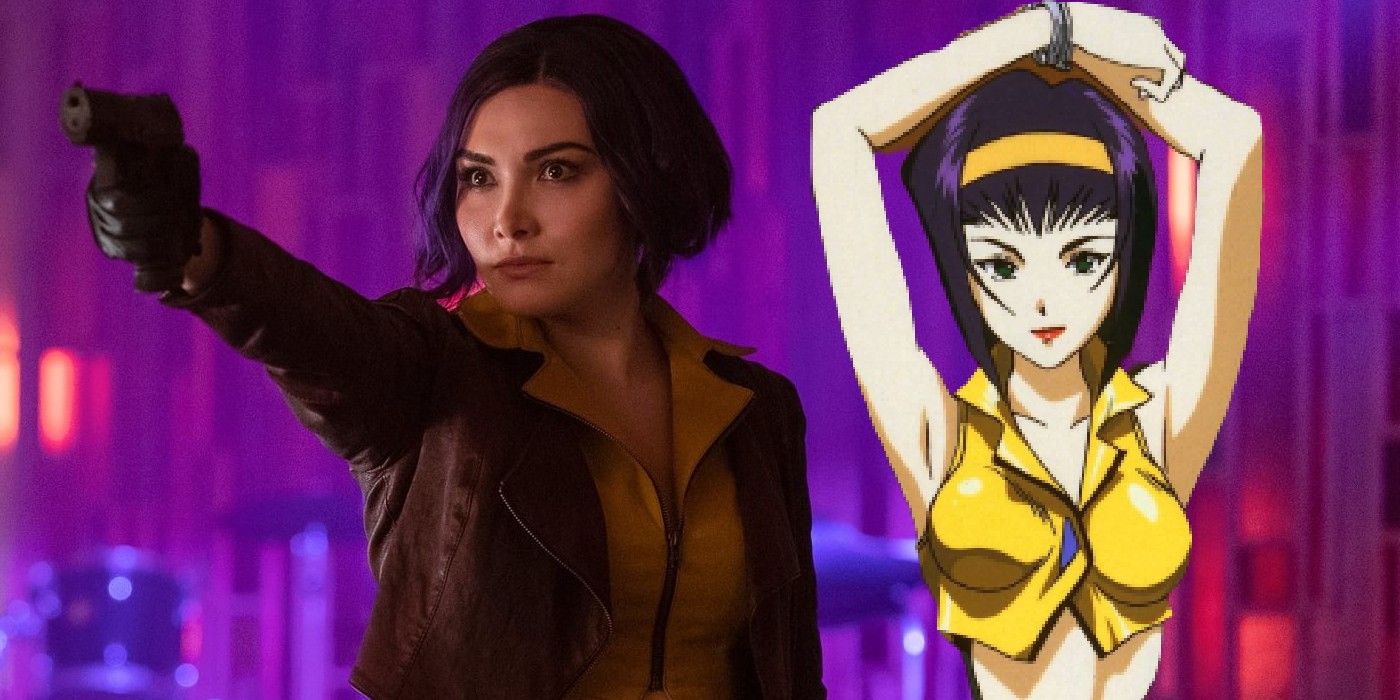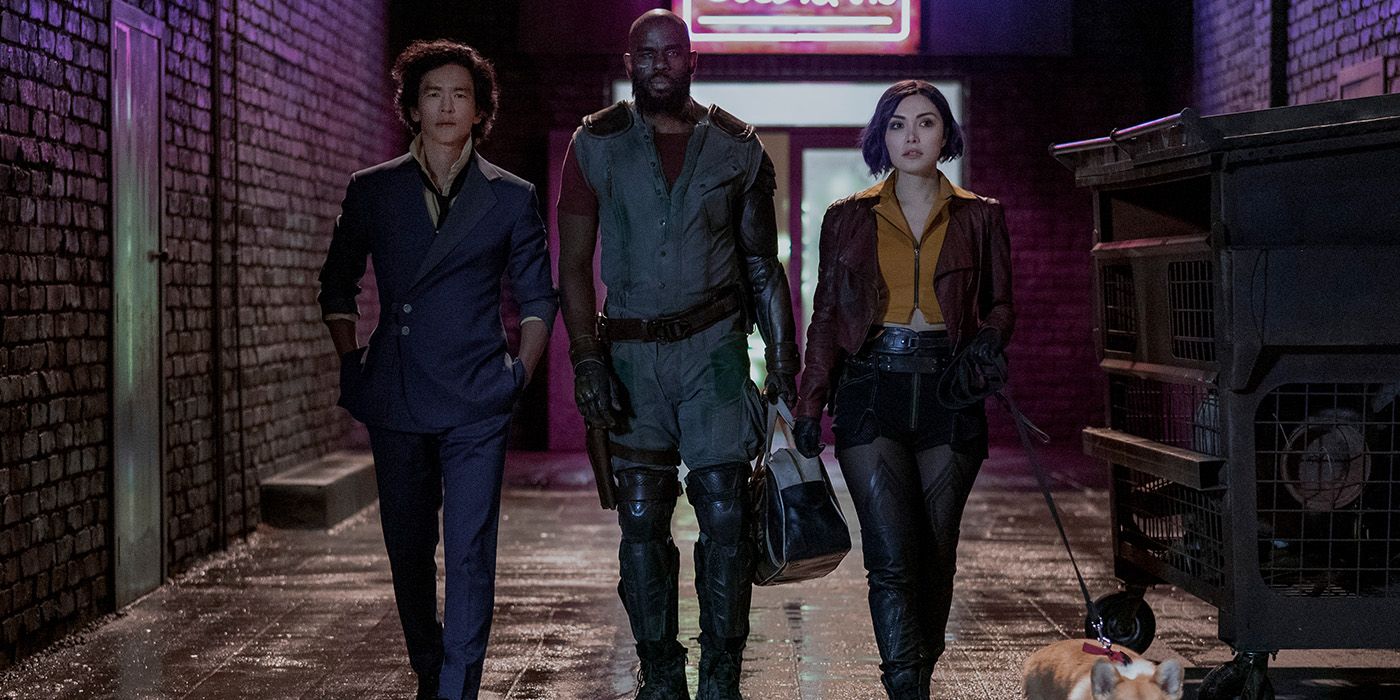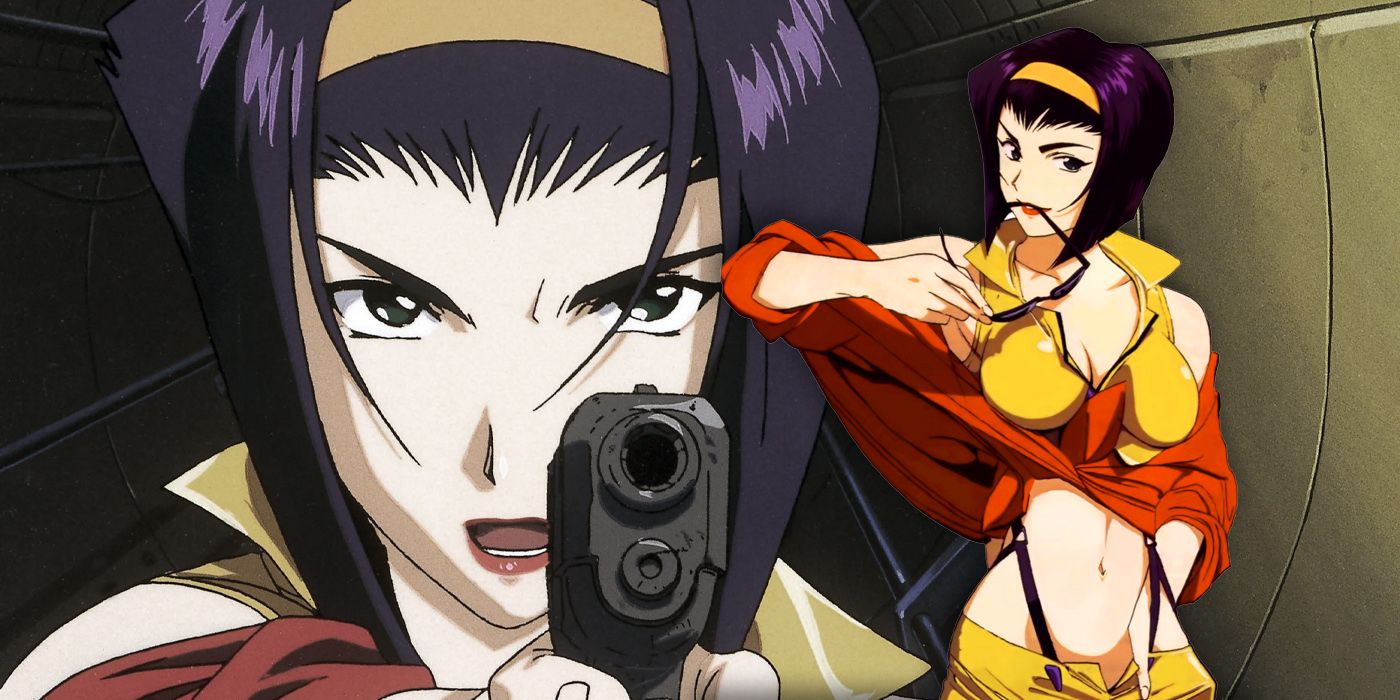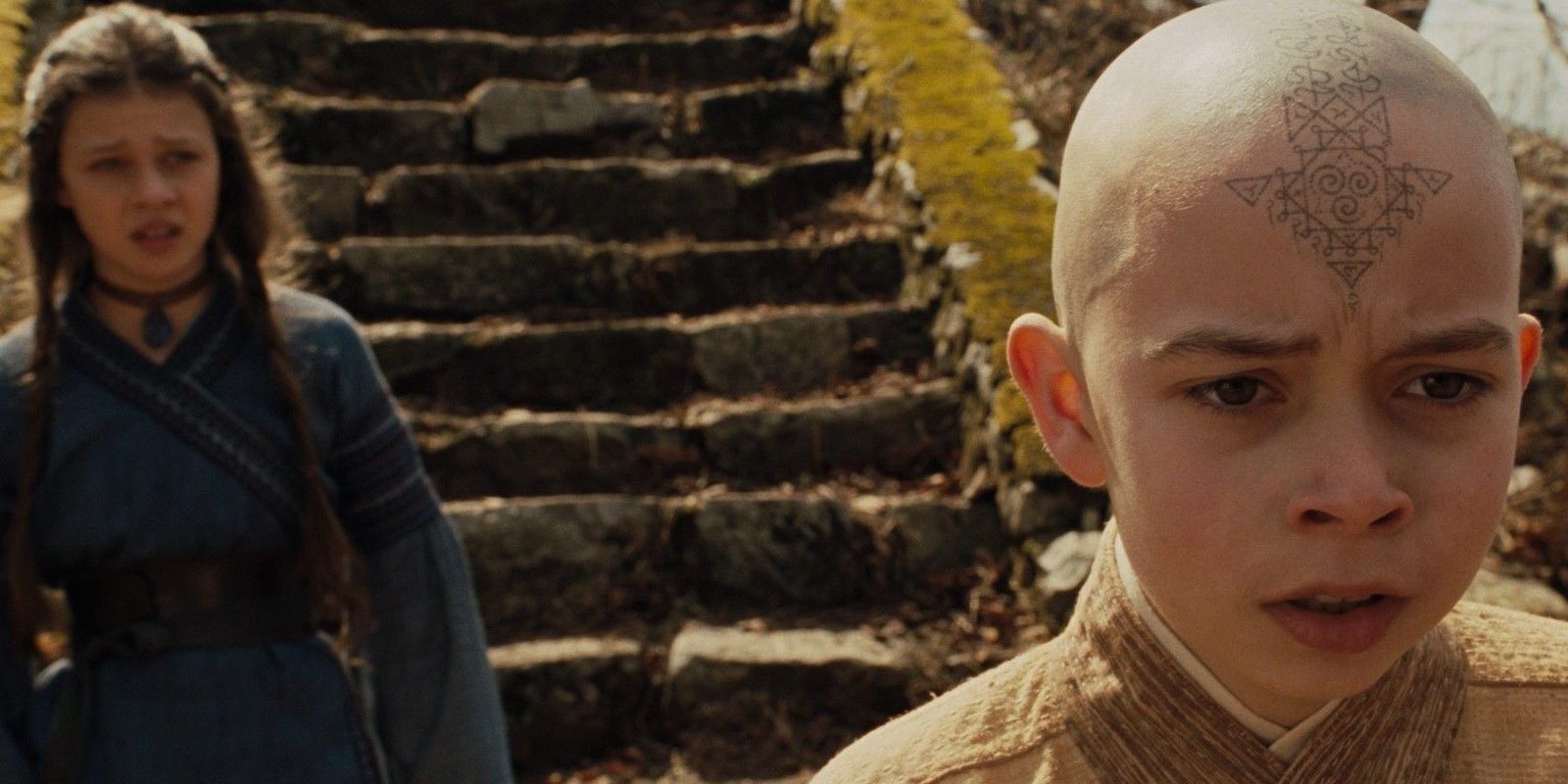
The backlash of a vocal few Cowboy Bebop fans regarding actress Daniella Pineda and her costume as Faye Valentine is frankly absurd. Sadly, these fans have doubled down on their harassment of the actress after she fought back against their attempts to bully her with a ferocity worthy of her character in the long-awaited Netflix series. It is a campaign based entirely on appearances, lacking the validity of many earlier fan-based movements against live-action adaptations of classic anime.
Set in the year 2071, Cowboy Bebop centered around a team of bounty hunters working out of the spaceship Bebop, including ex-hitman Spike Spiegel, ex-cop Jet Black and amnesiac con artist Faye Valentine. Running for only 26 episodes in 1998, Cowboy Bebop is widely considered to be one of the greatest anime series of all time. The show was famous for its unique jazz soundtrack and its blending of genres, mixing elements of space opera, noir, and cyberpunk. Cowboy Bebop is also notable as the first anime series to be broadcast on Cartoon Network's Adult Swim block in 2001.
Cowboy Bebop's unique aesthetic earned it a devout following, which was eagerly anticipating Netflix's live-action adaptation of Cowboy Bebop. Unfortunately, the release has been tarnished somewhat by the actions of a minority of misguided fans, who think appearances are more important than any other consideration in transitioning the show from animation to live-action. This has led to an utterly nonsensical effort to cancel the show before it is released, despite no actual footage from the show having been released so far.

The controversy began following the release of the first still photos of the cast of Netflix's Cowboy Bebop in costume. There were a number of predictable complaints regarding "woke casting," including Korean-American actor John Cho playing Spike Spiegel instead of fan-favorite Keanu Reeves (who had been linked to a Cowboy Bebop movie at one time) and the dark-skinned Mustafa Shakir playing Jet Black, who was a lighter-skinned Black man in the original anime. Most of their vitriol, however, was reserved for Daniella Pineda, whose costume as Faye Valentine was far more realistic and conservative than the hot pants, harness, and halter top Faye habitually wore in the animated series. They also complained that Pineda was too short, too flat-chested, and not skinny enough to properly play Faye Valentine.
Pineda responded with an ironic apology on her Instagram account, sarcastically assuring the fans that she was only cast in the role after the show's producers failed to find an actress who was six feet tall with double-D sized breasts and a two-inch waist. Pineda also apologized for the failure of her Faye Valentine costume to be skimpy enough to satisfy fan expectations, claiming she had originally tried doing the stunt work her role required while wearing a screen-accurate suit, only for the tiny costume to be "slurped up in my various crevices, never to be retrieved again." This mock apology, while pitch-perfect for the character of Faye Valentine, only further infuriated the complainers, who redoubled their efforts to turn the rest of the fandom against the Netflix adaptation, claiming that Pineda's attitude was indicative of a deep hatred for anime fans and a desire to destroy everything that was great about the original Cowboy Bebop.

Ignoring the absurdity of believing that creative personnel would actively work to drive away the established fanbase of a popular property and waste millions of dollars in developing a property they did not believe in, these complaints about Netflix's Cowboy Bebop adaptation make little sense. The aesthetic of the original Cowboy Bebop anime was highly stylized and it would be difficult to find any actor who matched the proportions of its characters exactly. Beyond that, while it is true that many creative cosplayers have remade Faye's signature look in real life, there is quite a lot of difference between wearing a costume while striking poses on the floor of a convention center and performing professional stunt work in what amounts to highly specialized lingerie. The key takeaway here is that all of these complaints are more concerned with physicality than practicality and appearances than acting talent, given there still has not been any footage from the series released that shows the actors interacting with one another.

Detractors of Netflix's Cowboy Bebop have defended their movement, pointing to earlier adaptations of other anime series that also merited organized protests. This is somewhat dishonest, as many of these movements were inspired by the same "woke activists" this collective of Cowboy Bebop fans claim are out to ruin their adaptation. Perhaps the most famous example of this was the fan boycotts of Avatar: The Last Airbender; first the 2010 film The Last Airbender by M. Night Shyamalan and the live-action series that is currently being produced for Netflix. The former movement was inspired by complaints of white-washing (casting white actors as characters of Asian heritage) in the original series. The more recent movement was inspired by the original anime creators, Michael Dante DiMartino and Bryan Konietzko, leaving the live-action television adaptation over unspecified creative differences.
This seems to be a case of comparing apples to oranges in both instances. In the case of The Last Airbender, the fan complaints were based around fears that M. Night Shyamalan's film would ignore the original series' mythology, which was deeply rooted in real-world Asian cultures. Similar boycotts were formed against the 2009 live-action adaptation of Dragonball Z, Dragonball Evolution, and the 2017 adaptation of Ghost in the Shell. The more recent boycott of Netflix's Avatar: The Last Airbender is based around the logical belief that the new series won't appeal to fans of the original if the original series' creators were so dissatisfied with the production that they were willing to quit.
These complaints are more substantial than those of the Cowboy Bebop fans, who insulted an actress' body because she didn't have unrealistic proportions, and insulted her costume for not being skimpy enough, then got upset when she responded exactly as one would expect her to. Their actions have only served to bring shame to the anime community and encourage the stereotype that all anime viewers are arrested adolescents. Thankfully, these fans are a loud minority and their attitudes are not representative of most anime fans.
Why Netflix’s Avatar: The Last Airbender Casting Should Ease Fan Concerns
from ScreenRant - Feed https://ift.tt/3yCV3Bp

0 Comments